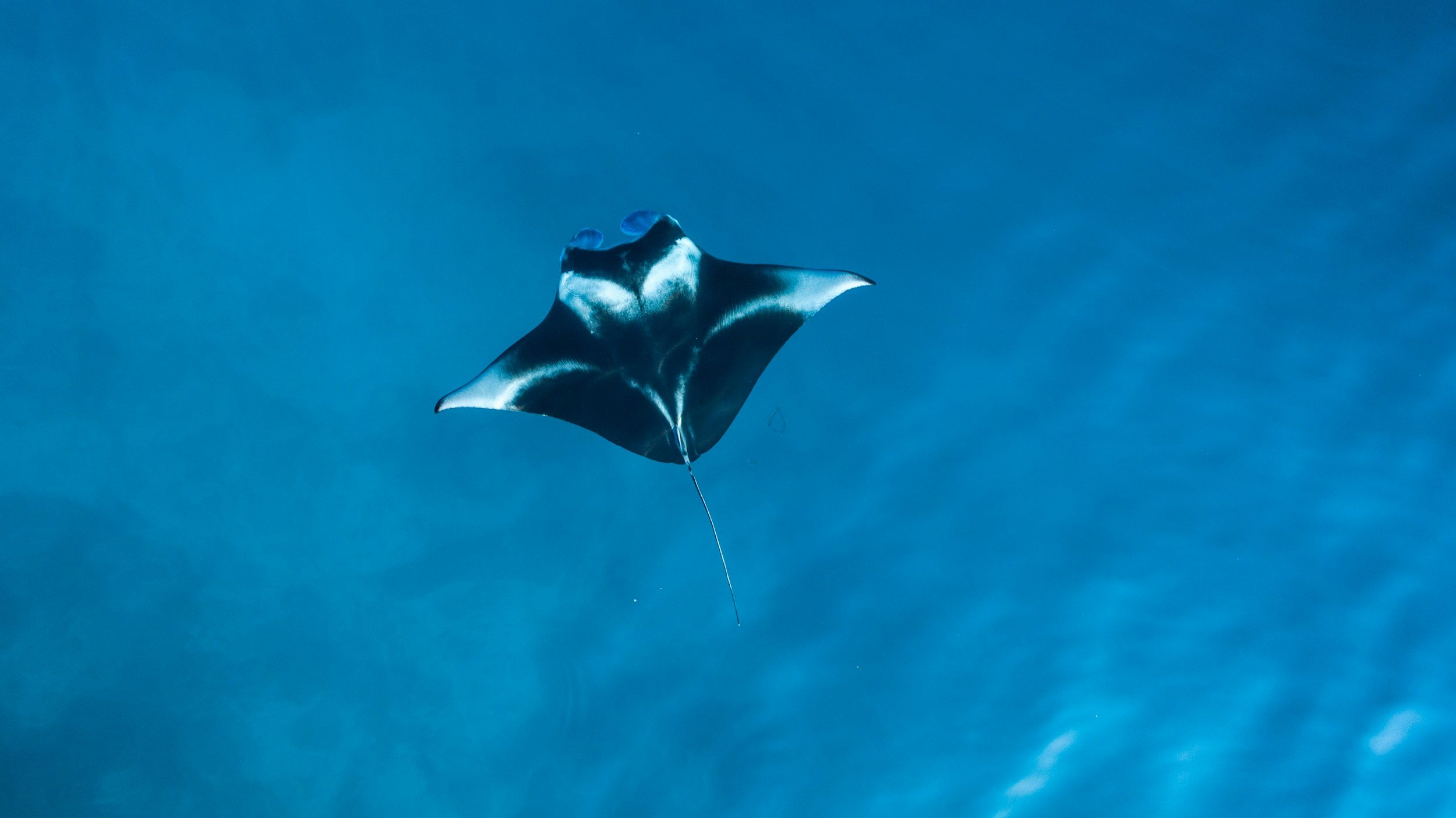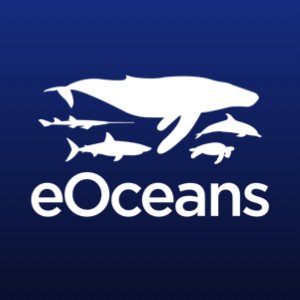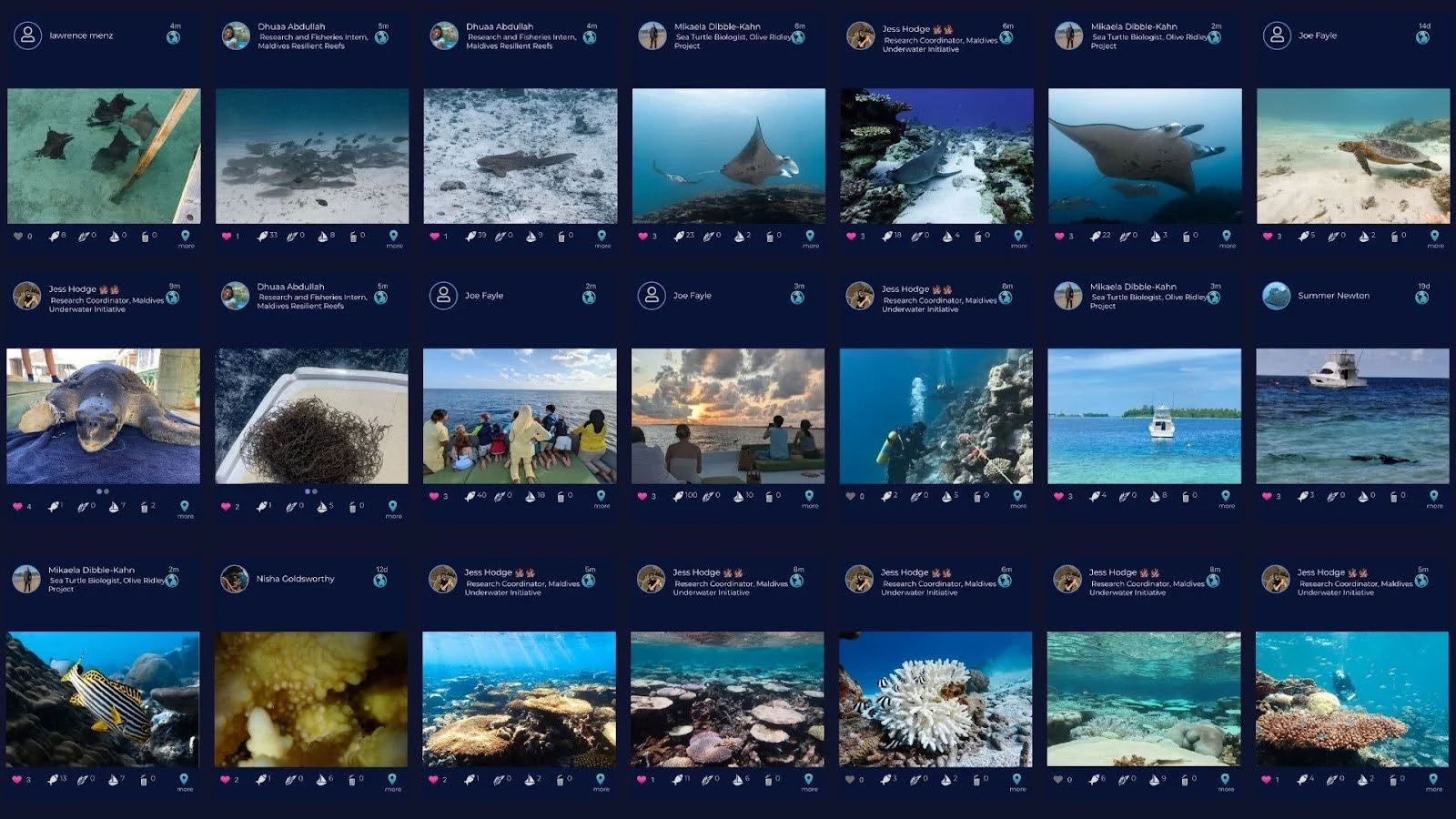
Tracking Giants: How MUI Ecotourism Operators are Shaping their Thriving Future
Read the case study: HERE
What if tourism didn’t just benefit from nature—but helped protect it?
The Maldives Underwater Initiative (MUI) have been monitoring megafauna sightings since 2017. Sharks, rays, dolphins, turtles, and other keystone species not only draw visitors from around the world but also support local livelihoods and balance ocean health.
Without long-term data and a clear understanding of these species and their socio-ecological value, their future—and the industries that depend on them—remain at risk. In 2023, MUI adopted eOceans and streamlined their entire monitoring workflow creating unforgettable guest experiences and safeguarding the ecosystems that they rely on.
MUI: the eyes and ears of the Laamu Atoll
Maldives Underwater Initiative (MUI), a team of marine biologists, dive guides and conservation partners, are raising the bar for ecotourism and community science. They monitor marine megafauna, conduct field surveys, and educate guests, offering a compelling example of what’s possible when tourism, science and technology intersect.
MUI equipped their team with the eOceans mobile app, shifting their everyday observations—from snorkelling tours to structured scientific dives—into real-time, actionable insights. With every entry, maps, graphs and trends are generated that reveal patterns in biodiversity, human activity, environmental threats and the socio-economic value of the Laamu Atoll’s marine ecosystem.
By moving away from time-consuming spreadsheets and disconnected data logs, MUI streamlined their workflow and elevated their impact. The result: a more efficient, collaborative and science-driven approach that supports conservation and empowers tourism to support the ocean it relies on.
One-page summary of the case study from the Laamu Atoll by Maldives Underwater Initiative. ©eOceans 2025
Marine conservation + technology
This work in the Laamu Atoll was made possible with the eOceans mobile app. Purpose-built and patent-pending, the app simplifies data collection and continuously updates visual reports, enabling faster, more accurate insights.
By automating traditionally labor-intensive and error-prone processes, the platform ensures fast access to high quality data. If scaled globally, this technology could support smarter and more adaptive decisions, for the ecotourism industry, and beyond.
When data leads, conservation follows
Laamu Atoll is home to rare and endangered species—and rising threats like plastic pollution and coral bleaching. Without long-term data, these ecosystems are vulnerable, and so is the tourism that depends on them.
With over 84,000 animal sightings and 7,300 recorded human activities, their project has become a leading example of efficient, science-driven marine tourism. MUI’s data has already contributed to key conservation outcomes, including Laamu’s designation as a Mission Blue Hope Spot and the creation of Marine Protected Areas (MPAs), Community Conservation Areas (CCAs), and Important Shark and Ray Areas (ISRAs).
Their work proves that tourism operators can do more than just observe the ocean—they can be leaders in protecting it.
Looking ahead: the future of ecotourism
The success of MUI’s work with eOceans sets the stage for a new era of eco-tourism.
By empowering staff, guests, and partners to collect meaningful data and engage with ocean science, operators can directly contribute to conservation, adaptive management, and sustainable economic growth using the eOceans app.
As more resorts and regions adopt this model, tourism can evolve into a global network of community-based ocean stewards, protecting what matters while enriching every guest experience.
🌊 Read the full case study
Read the case study HERE to discover how MUI is revolutionizing eco-tourism and using eOceans to make informed decisions, optimize trips, elevate guest experiences and advance conservation initiatives. Together, we can ensure our oceans are utilized and protected for us and future generations to enjoy.


